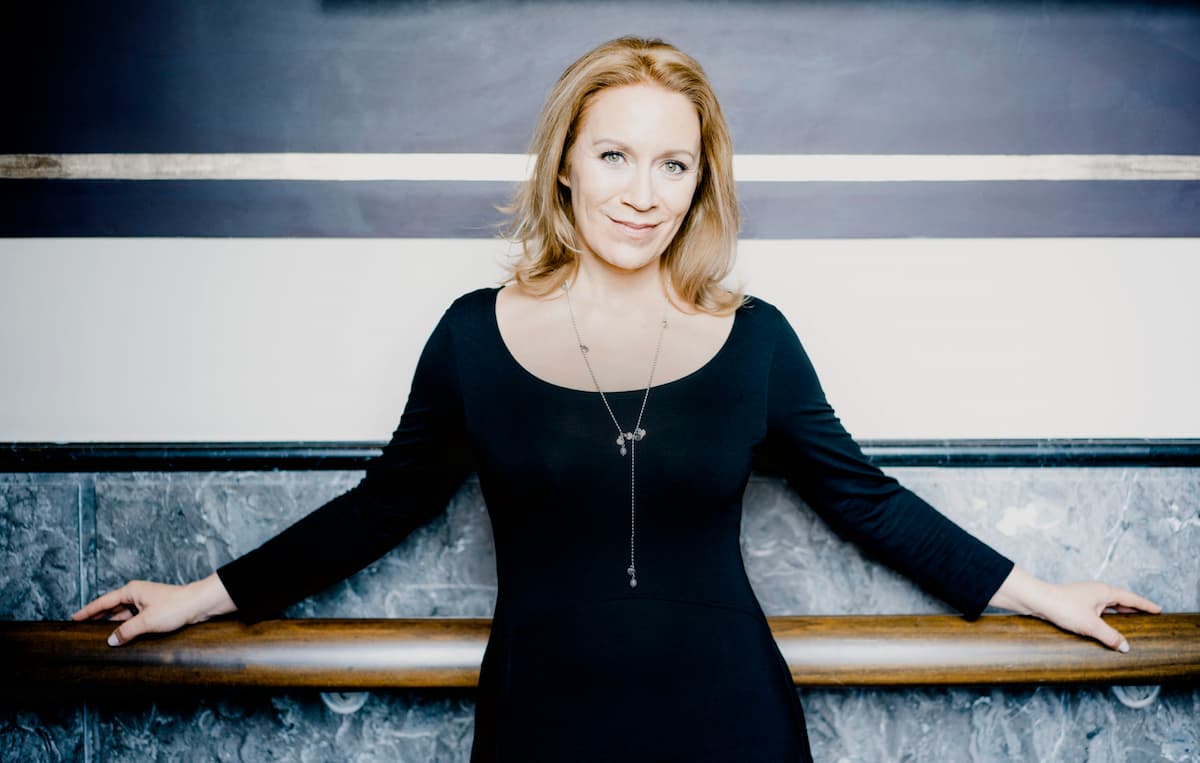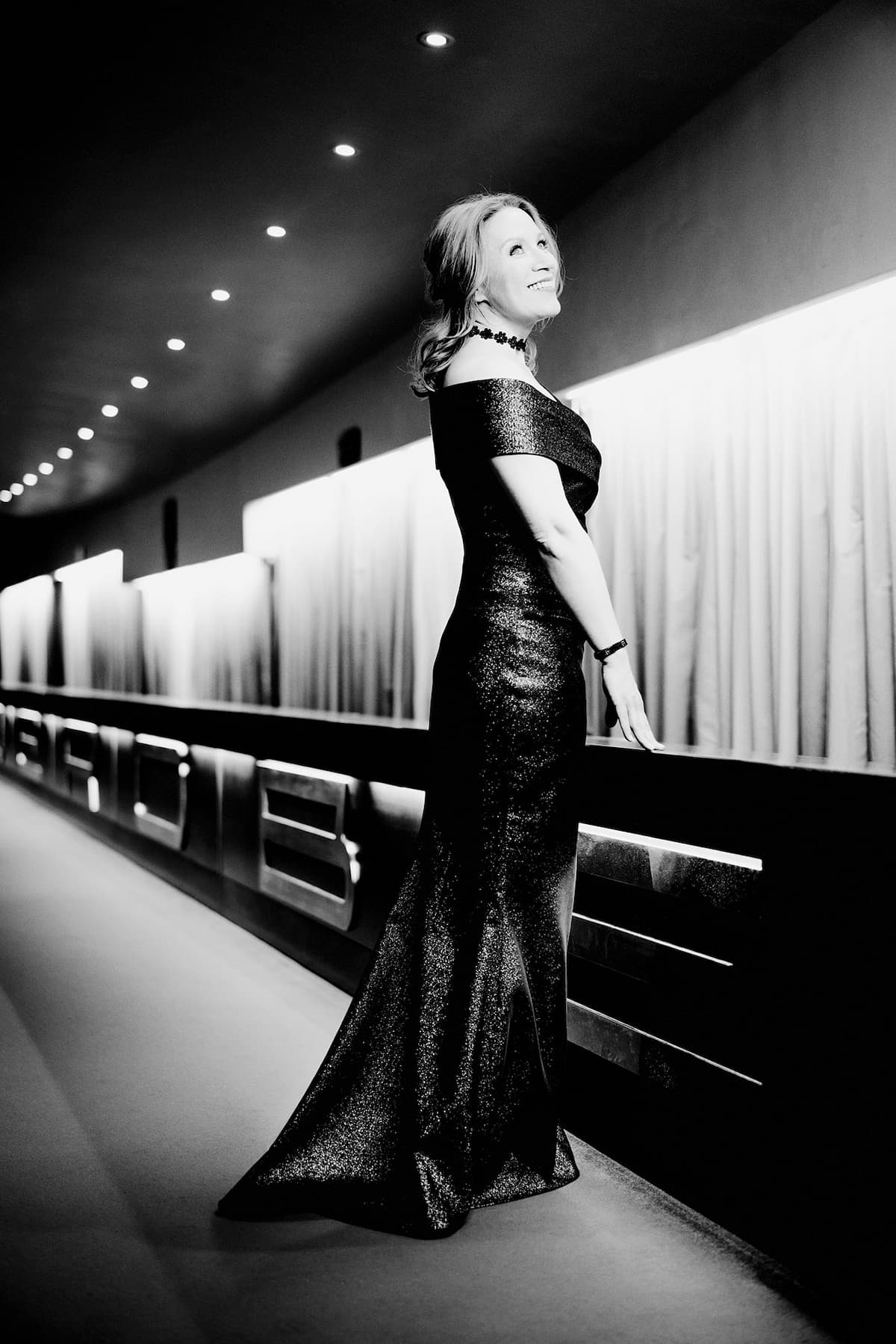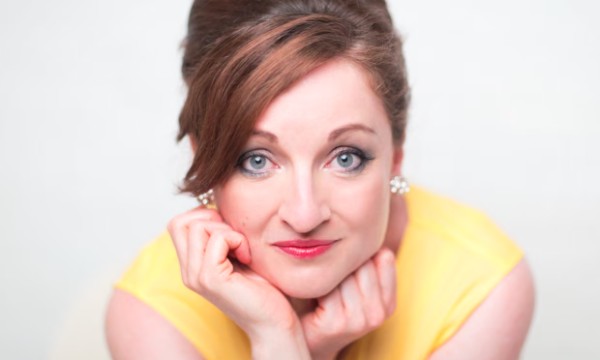‘We Have To Embrace Our Own Route And Do What Seems Right’

Carolyn Sampson © Marco Borggreve
Described as ‘radiant’ [The Times] and with a ‘freshness of tone, superb control and subtle sensuality’ [The Guardian], British soprano Carolyn Sampson has achieved international acclaim from the recital room to the opera stage across Europe and the US.
Carolyn is a prolific recording artist, having been featured as a soloist on over 100 albums to date. Her 100th album, But I Like To Sing… was released in November 2023, and plans are already in place for her next project with regular duo partner Joseph Middleton.
Coming from a family of teachers, performance wasn’t the obvious career choice for Carolyn when growing up. Singing in local choirs led to a period in Ex Cathedra, a Birmingham-based group that was her springboard into the profession, quickly leading to experience with early music ensembles, including the King’s Consort, Collegium Vocale Gent, Bach Collegium Japan and the Orchestra of the Age of Enlightenment.
Carolyn’s wheelhouse is far from that of just early music, however. She is in great demand as a recitalist and on the opera stage, the latter of which gets slightly less attention these days due to her desire to balance work with family commitments.
Carolyn Sampson & Joseph Middleton – Gabriel Fauré, Mai Op. 1 No. 2
I met Carolyn at a recent concert where we were both performing a piece that is dear to her heart: Haydn’s great oratorio The Creation, with Britten Sinfonia in London’s famous Westminster Abbey. I start by asking her about her most recent opera engagement: singing the role of Créuse in Charpentier’s Médée in 2023 at the Berlin Staatsoper, conducted by Sir Simon Rattle and directed by Peter Sellars.
Did the Charpentier project give you back the bug after such a long break from the opera stage?
It did, in a way, because it was amazing, and it was a dream team of people – Simon Rattle and Peter Sellars and the whole cast, it was a really happy production. It felt like a really beautiful production, a really thoughtful thing, and I loved it, but I just can’t be away from home.
It was really hard, and it was sort of an experiment to see whether it works, and I think for me, it probably doesn’t. I’m a single parent, so my mum does a lot of child care, and it’s just a really big task.
Next year my kids have got GCSEs and things like that, so on the one hand they’re getting older, but on the other hand they need me. That’s my best job and my first job, being mum.
You are an artist renowned for your versatility. Do you have a difference in approach when you’re preparing something like The Creation as opposed to an opera, or a recital with piano?
I think they just need different things. In a way, I don’t think it’s conscious. The Creation, honestly, requires quite little preparation because it’s a piece that I’ve done regularly over pretty much my entire career. It comes around once every year or two and that’s lovely. There are a few pieces like that, which is great, because those are the ones where there’s generally less stress in the preparation.
In opera you just have to learn your bits and then you turn up, and the main bulk of the work starts once you’ve learnt your role, I think.
Piano recitals are an incredible amount of work, but so rewarding. I’m just putting together a new programme with Joseph Middleton, who I do all that stuff with, and it’s something that’s been the germ of an idea for years.
We’re constantly coming up with new things and we’re seeing what fits at any given time. This recording project has been in the back of our minds for a long time as an idea, and it suddenly crystallised a couple of months ago.
We’ve both had repertoire ideas going round in our heads, but just very gently. I think it’s so exciting, this bit of the process. There’s one piece which will be the focus, the main chunk, but because we’re not recording till October, we’ve got plenty of time to find the [other] songs that fit the concept.
It’s quite exciting: gathering loads of material and working out what isn’t going to work. I find it really good fun. It’s a work in progress but I know the music is going to be quite challenging – it will probably include some Messiaen, some Elizabeth Maconchy, George Crumb… So they’re things I don’t sing very often, which is also good.
Whatever the music, my approach is the same: it’s about understanding the music and singing it the best way I can and figuring out what story we’re telling, and that applies to everything.
Is that your normal process for recordings, sitting with lots of material and whittling it down?

© Marco Borggreve
With Joe Middleton, that’s definitely what we do. Because sometimes you don’t really know, I think. You put together a programme and it looks good on paper, and then maybe it just doesn’t feel quite the same with an audience, and also I think concerts are different to recordings, and a concert programme isn’t necessarily how you should record it.
There’s one that we did, A Reason in Madness, which when we did in concert had a German half and a French half, and actually on the disc it felt a bit weird, so we mixed it up. So we’re quite flexible, from that point of view.
How does it feel to have released over 100 recordings?
It’s kind of a bit mad, really. It’s not something that I set out to do. I just started singing professionally quite young, I think, and a lot of the first recordings are with some of the early music groups, and they were the ones who trusted me and let me have solos quite early on.
The main criterion for ‘the hundred’ was that I had to be named as a soloist on the front or the back of the album cover. That was the rule, because there are loads more recordings where I just sing in the choir, and I really don’t know how many of those there are.
It’s funny – it’s just the world I went into. And now the lovely thing is that I get a bit more say in what I do, and BIS records, who’ve released quite a lot of those hundred, have been amazing at saying yes to many of my ideas, which is really supportive and valuable.
As an artist constantly moving and looking ahead to the next project, do you ever give yourself chance to look back and reflect?
I think that the last season has been that chance. On Instagram I did a little video for each record of the hundred, and I backdated it, from the release date of the hundredth: a video a day to explain what each record was.
It was interesting for me to look back and remember some of them, because of course some recordings stick in your mind a lot more than others, and there are a few favourites that come round.
It was really nice to reflect, and for me, interesting to see my development as an artist. I think the vast majority of the first 50 are early music because that’s what I was doing at the time, and then it’s really nice as you start to see the other repertoire creep in.
The recitals came fairly late because I had only started doing recitals with piano seriously and regularly right at the end of my 30s. And now, that’s become the thing that I like doing the most.
Now, because I have a bit more control over what I sing, if we’re trying to include more women composers and more diversity, it’s very easy for me because I can programme like that if I want.
Carolyn Sampson & Joseph Middleton – Schubert: Die Sterne, Oxford Lieder Festival 2020
What questions are at the front of your mind when programming a new recording?
I hope what people hear when they listen to my recital recordings is that we try very hard to choose music where some of it will be familiar, but some of it hopefully won’t, even if it’s all by a famous composer. We try to make sure that there are some things in there that are a bit different, or that we can introduce people to without scaring them.
I’m not confrontational or pretending to set the world alight with my crazy new ideas. It’s more just gently saying, ‘There’s this and there’s this, let’s not just listen to that.’
Things can be approachable. The variety out there is incredible, so it’s just about trying different things. I’m really proud that on each of the last three records that I released, there was a piece that had been written for us. It’s very exciting if you get to work with the composers.
What’s the reception been like with some of the more contemporary things that you’ve programmed and recorded?
I find that people that don’t know classical music are actually much more open to it than our traditional audience. I find that really interesting because if you’re inviting someone to a concert and they’ve come to hear some Mozart that’s fine, but if there’s a brand new piece in there, even for just five minutes, they’ll often talk about that rather than the Mozart.
You don’t have to know anything about classical music to go to a classical music concert – you can come and you can have your opinion, and that’s fine. You don’t have to be clever or have read the books or listened to anything else. You can still come along and say, ‘I liked that bit of the story, I thought that instrument sounded cool.’
You come from a family of teachers. How did the music appear as a child?
My mum learnt piano a bit but she used to sing with me all the time when I was little. My dad played drums in a band – he was a teacher but sang in a choir at school, so music was sort of there, but we didn’t listen to classical music at home or anything like that. It was more Cliff Richard!
Mum says that I always sang – and my own daughter does too. I learnt piano and violin and sang in choirs and that was just what I did. My favourite thing in the world was to sit down at the piano and play. Not to practise: I would play through everything in the book so my sight reading got quite good because I would go to my lesson and sight read everything I should’ve been learning!
For me, just the joy of reading and playing the notes and singing along is what I did, and is still what I do, if I’ve got spare time.
I didn’t have a plan to be a singer. I had no clue what I’d do. I did a music degree at Birmingham because music was the obvious thing for me to do, and it was there singing with Ex Cathedra that it became clear that it was a possibility.
It was Jeffrey Skidmore, the conductor, who asked me in my third year what I was going to do, and he said I should go and sing for Harry Christophers [conductor of The Sixteen] and people like that, so that’s how I ended up doing the early music choir route. That was my training ground and it was brilliant.
In The Creation the other night [with Britten Sinfonia], we soloists all came from ensembles originally. Singing those duets and trios with Simon [Wall] and Jonny [Brown] was so nice because we understood that we all have the same background, and it felt very natural to sing as an ensemble. It’s not always like that with soloists!
How did it feel when you started to do your first solo engagements?
It was exciting. It wasn’t something that I’d sought out, I didn’t have a big dream to do a thing, and in a way, I’ve just gone along and been grateful for everything at every step. I’m always a bit surprised that things are how they are, but in a way I didn’t put any pressure on myself because I wasn’t fulfilling some big thing, some grand idea of what my life or career would be, so in that sense I’ve been quite relaxed about it.
There are so many different paths that you can take. There isn’t just one career route. And there isn’t a ‘top’ either. For some people the top is singing at the Met or Covent Garden, and for other people the top might be being a member of the BBC Singers or The Sixteen, or the choir of Westminster Abbey.
How extraordinary, all these different things, and we just all find our own path. That’s a really beautiful thing, because the industry is so huge and there’s so much out there. Of course there’s not just one thing and one way to get there.
We all have to embrace our own route and do what seems right. Maybe that’s a luxury position to be in, because we can’t always choose, we’ve all got to earn money, and that applies to all of us. There are jobs you’re desperate to do when they’re offered, and there are jobs that pay the bills, which is ok, because it’s a job. We don’t have to have a plan. If you do, fine, but I think it’s alright if we’re just open.
For more of the best in classical music, sign up for our E-Newsletter




